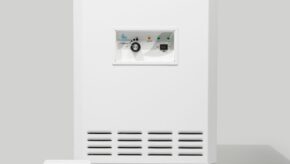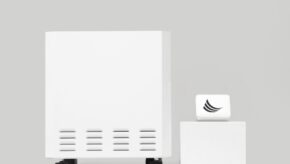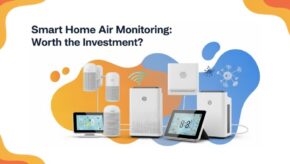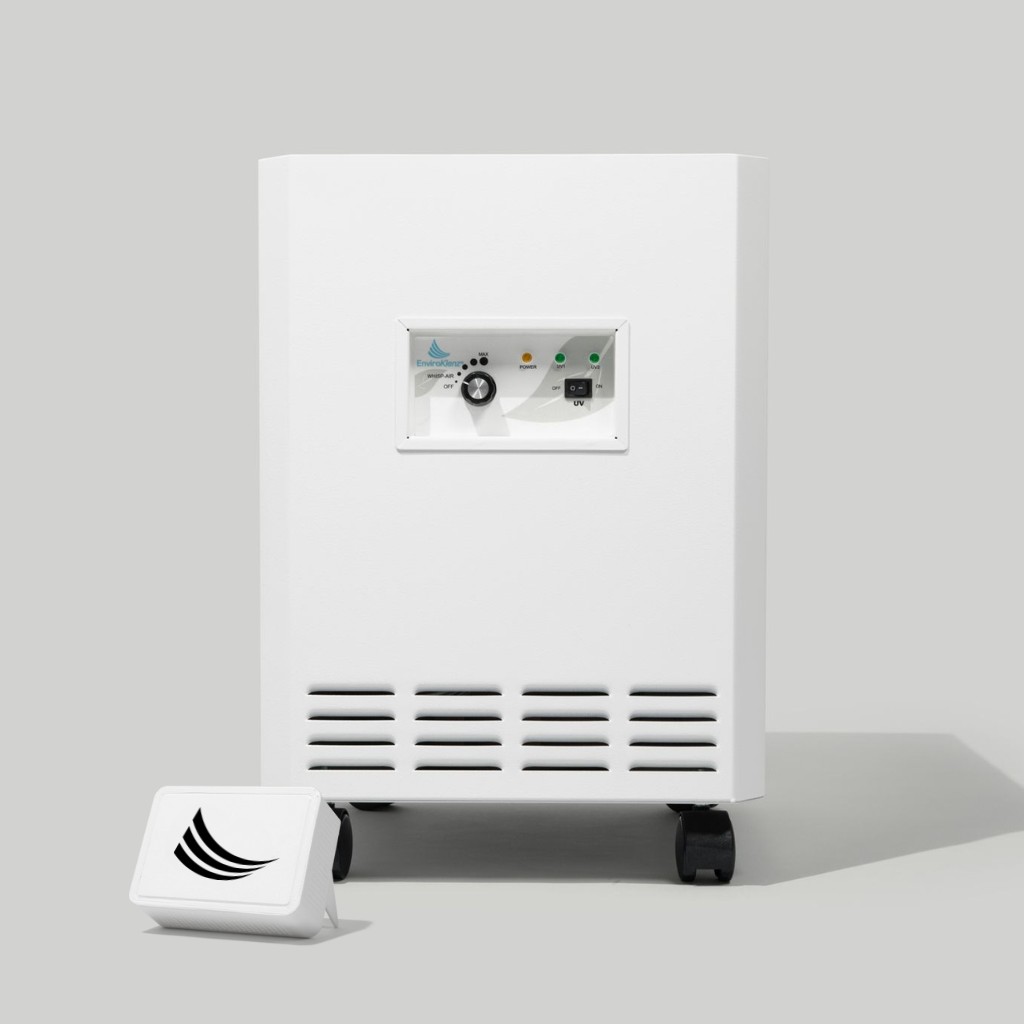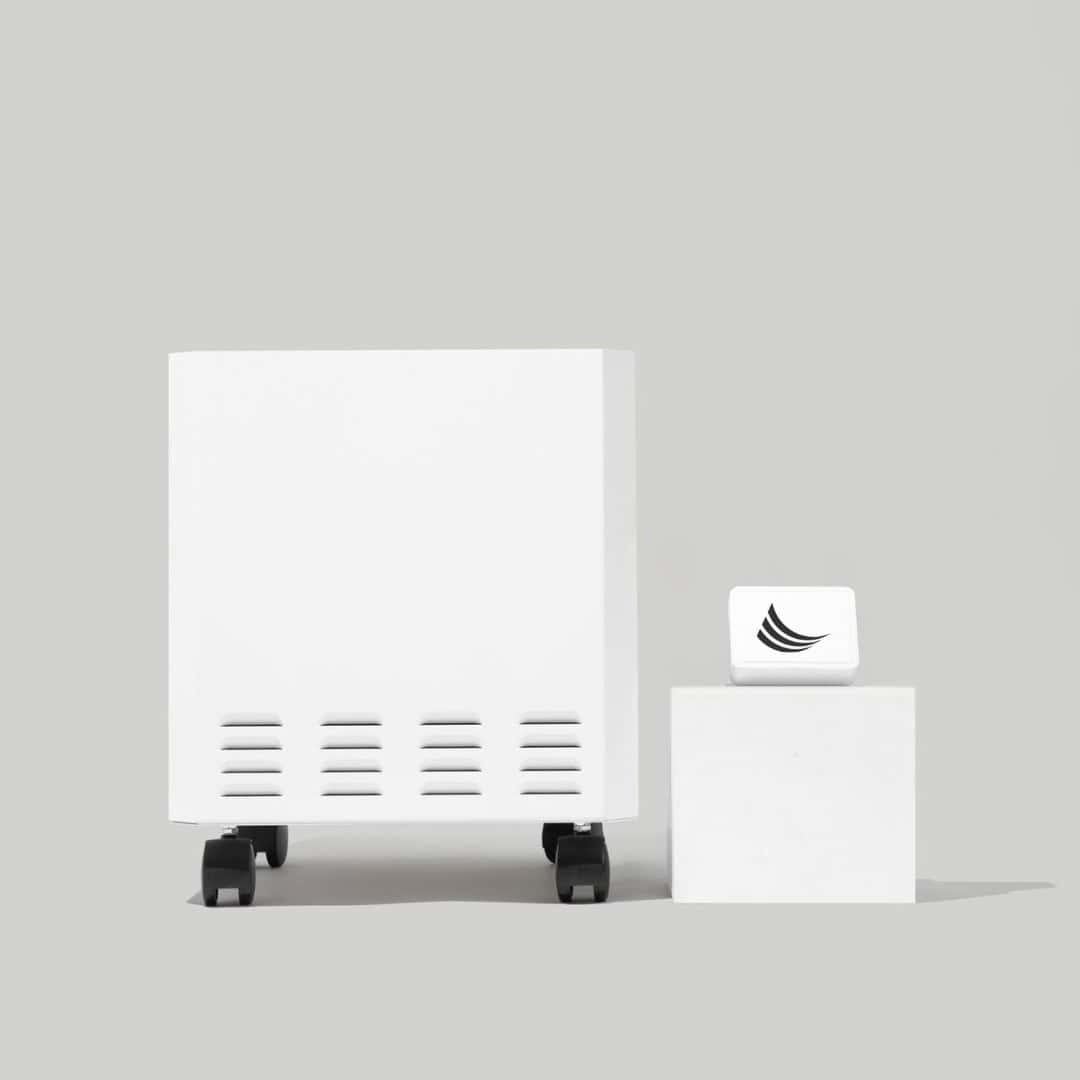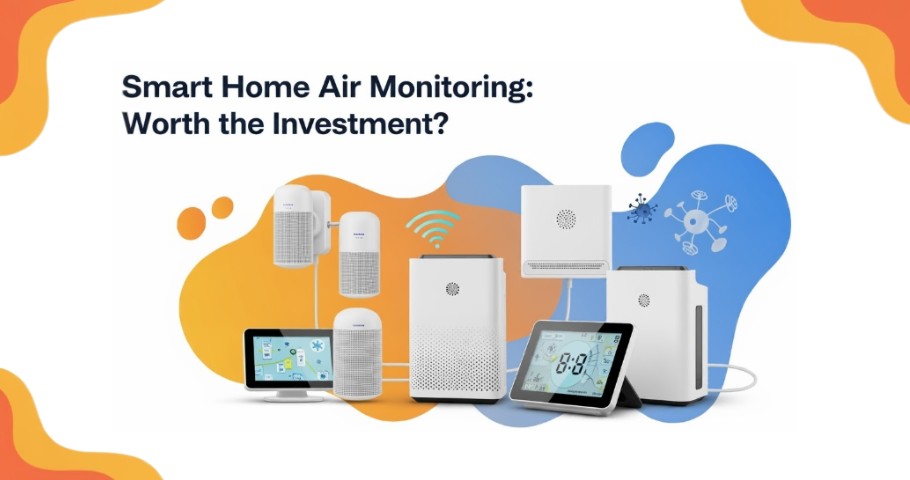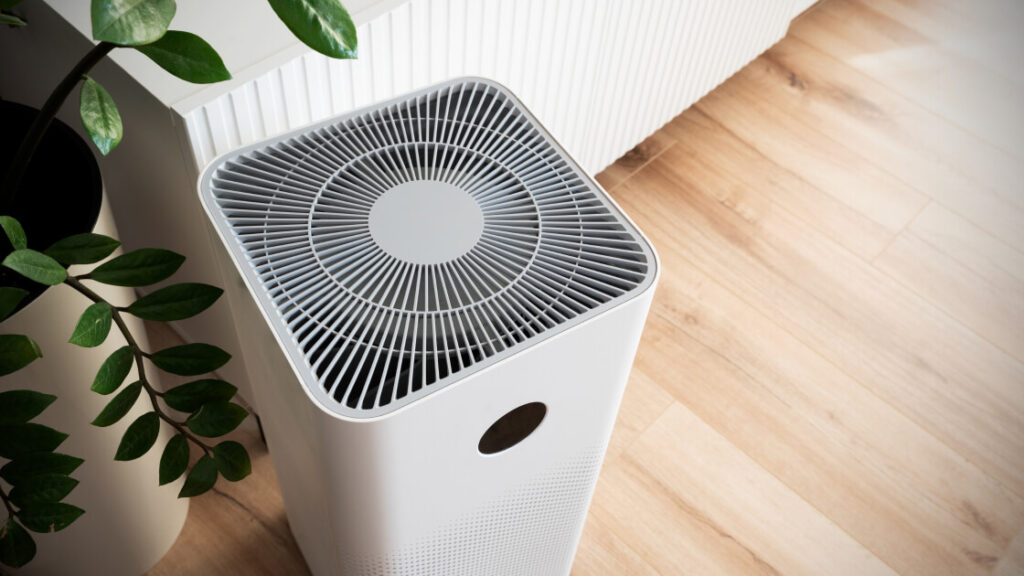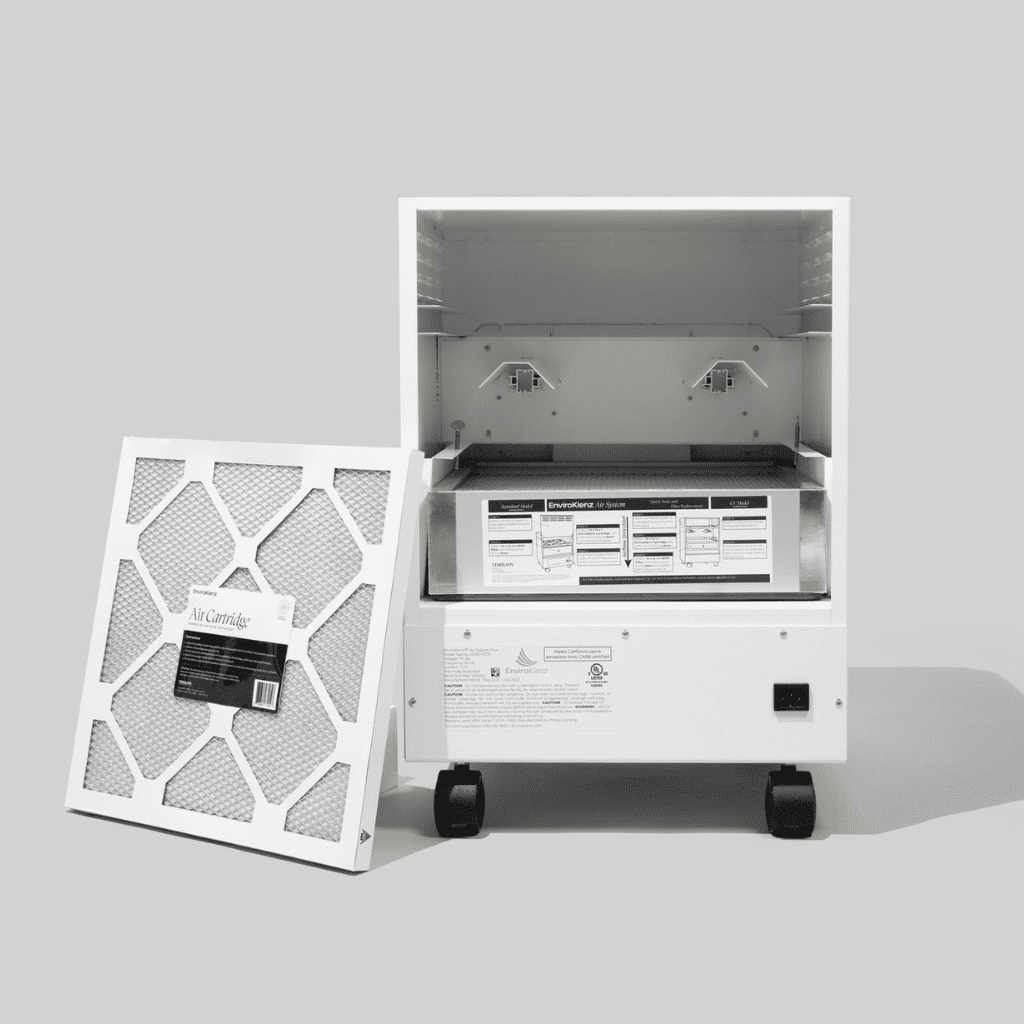Did you know that you inhaled more than 14,000 liters of air a day? The air that we breathe in is often something that we tend not to think about, and the potential effects to our health when this air is not as clean as it should be. As more and more concern has been placed on indoor air quality, there has been an outpouring of different air purification and other air devices that have become available to consumers such as air purifiers, dehumidifiers, and humidifiers.
Air purifier vs humidifier they can both impact the air that you breathe in your home, as they each will serve different purposes inside the environment. Those with airborne illnesses, allergies, asthma, or even those with weak immune systems like babies will benefit from the use of one of these air devices inside their environment.
We are going to discuss the different set of benefits that both a purifier and a humidifier provide to the indoor environment and in which situation you should use these devices inside your personal indoor environment.
Air Purifier vs Humidifier
An air purifier is a device that is used to remove particles and other pollutants from inside your indoor air in an effort to improve the air quality in this environment. The air purifier is composed of two basic components, a fan and a filter surface, and with the use of an air purifier technology such as ozone, ionizers, HEPA, or PECO the air purifier is able to work against VOCs and noxious odors. These technologies are among the most commonly used technologies in air purifiers, however, each of these technologies have their down-falls and incompetency’s when it comes to removing VOCs and other chemical pollutants and odors. A new technology in air purification has emerged that is able to make an air purifier system well-rounded and efficient in all aspects of airborne contaminant removal called the EnviroKlenz technology.
Most air purifiers work by air passing through the unit, trapping pollutants within a filter and emitting clean air back into the environment. Air purifiers do not add any moisture to the air, like that of an air humidifier.
Air humidifiers are devices that add water into your air by boiling the water into steam, and vibrating water droplets into the air with an ultrasonic technology – or by evaporating water using a fan and a wick. There has been some skepticism in the new ultrasonic technology that is used in some air humidifiers as they introduce tiny mineral particles into the air if you use tap water rather than distilled water into the machine. The effects of these particles in the air, particularly when ingested or inhaled, is unknown and therefore it is recommended to only use distilled water. Overall, an air humidifier helps to increase the relative humidity of the indoor environment which will help in dry climates.
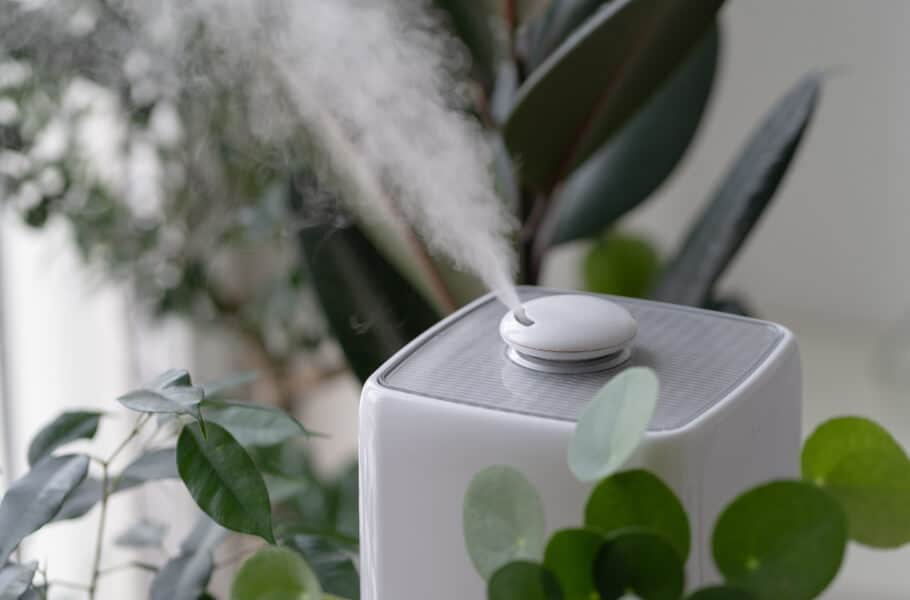
Health Impacts of Purifiers and Humidifiers
There are many benefits to using an air purifier, it is able to rid the air of dander caused by pets, remove odors and germs that pets bring into the home, and remove pollen, mold spores, and dust mites known to cause allergies. Depending on the type of air purifier you have it may also be effective at removing flu viruses and bacteria that are traveling inside your home’s air.
Whereas the benefits of using an air humidifier consists of reducing dry skin, decreasing breathing problems, and lessen a persisting cough. A humidifier accomplishes this by adding moisture into the air and reducing static electricity.
The benefits that each of these air devices can present to the environment and the health of individuals will depend on the type of health issues you are currently plagued with, whether it be airborne illnesses or allergies/asthma.

Airborne Illnesses
When it comes to airborne illnesses, common air purifiers will help to capture particles in the air, though some of these particles like bacteria and viruses can be microscopic and will potentially slip through the filter of an air purifier. That is why it would be beneficial to utilize an air purifier with a HEPA filter that is able to capture fine particulate matter as large as 0.3 microns in size with a 99.97% efficiency. This filter will help to trap these tiny microorganisms that can affect your health and reduce your potential exposure to airborne illnesses like the flu or cold.
Humidifiers are able to aid when someone is experiencing an airborne illness (flu or cold) as it will help to relieve stuffy noses and the discomfort of colds and flus. When your indoor environment is at the ideal humidity it may also provide a protective benefit from viruses. Overall, a humidifier will only help you to minimize symptoms once you have them rather than cure you once you are sick.
Allergies & Asthma
Asthma and allergies can be significantly triggered by airborne contaminants in the indoor air and therefore having something that can filter out these airborne allergens like an air purifier can be a real benefit for those with allergies and asthma. Air purifiers will trap airborne allergens such as dust mites, pet dander, pollen, and mold spores that are inside the indoor air and increase the quality of the air you breathe.
Humidifiers, on the other hand, have no impact on allergen levels and rather they can help with allergy/asthma symptoms to feel less severe if your nasal passages are dry and irritated. In some cases, humidifiers have been shown to actually increase the risks of allergies and asthma as they can, if not properly cleaned, grow mold inside the humidifier.
Does a Humidifier Clean the Environment?
Something that should be clear is the fact that humidifiers do not clean the air, rather they add moisture into the atmosphere inside the home. An air purifier is what is designed to specifically remove particulates from the air to improve the air that you are breathing indoors. If you are strictly looking for something to clean your home’s air and improve the indoor air quality inside your personal indoor environment than an air purifier will be the better selection over a humidifier.
When to Use an Purifier vs Humidifier
Next thing you will want to examine is when you should use an air purifier versus humidifier. This can depend on a variety of factors including the conditions in the home and what you are trying to accomplish within this environment. Whether you are looking for something for asthma and allergies or even something to place in the precious location of your baby’s room, you will have to decided which would be more beneficial in which environment. We are going to discuss which would be the ideal selection for which circumstance!
Humidifier for Baby’s Room
When it comes to selecting which air device should be placed in your baby’s room, you need to be sure to make the absolute best decision as it can have a direct impact on your infant’s health. A humidifier may be the better selection in a nursery, particularly if the main problem is dry air. In dry air environments, a humidifier can help to prevent the dry, scratchy nose and throat that you may experience in this environment.
Placing an air humidifier in a baby’s room can be beneficial according to the FDA that states, using a cool mist humidifier can potentially help alleviate a cough or cold symptoms that your infant may be experiencing. However, there is a fine line when selecting an air humidifier for a nursery, as warm water mists can have adverse health effects and can trigger swelling in the nasal passages and increase breathing difficulty.
Purifier for Baby’s Room
Conversely, an air purifier inside a nursery can aide the environment and the health of the infant long-term. Air purifiers help to reduce the pollutants in the air and overall improve the quality of the air in the nursery.
Air Purifier for Asthma and Allergies
For an individual plagued with allergies, whether they be severe or acute, an air purifier is a better choice in their environment to help improve this condition. Depending on the air purifier that you select (and which technology it utilizes), an air purifier will help to reduce allergen levels in the air. A HEPA air purifier will collect and trap particles, including ultra-fine allergens from the air and improve the air quality. Humidifiers can potentially help soothe a stuffy nose or other allergy irritants, however, they can actually make allergies worse as it raises humidity levels which improves the survival rates of dust mites.
Also, for an individual that suffers from asthma, an air purifier would be the better method to use – as air purifiers trigger the growth of harmful bacteria, dust mites, and mold. Asthma attacks are triggered by pollutants in the air, and with an air purifier it can remove pollutants that can significant influence asthma.
Can You Use an Air Purifier and Humidifier in Same Room?
Say you want to use an air humidifier and an air purifier in the same room, is this recommended? The answer is yes, you can use both of these air devices within the same space. The reason for this is that these are both completely different air devices that operate in different manors in the air, and therefore they can be together. However, it is important not to place these machines close together and they can impact each other’s functions – a humidifier could clog filters that will limit an air purifiers effectiveness.
Comparison Analysis
When it comes to promoting a healthy environment and improved air quality indoors, utilizing an air purifier will provide the ultimate protection and benefits to health and air quality. Before you purchase both of these machines, do your research to learn for what situation you should purchase either an air purifier or an air humidifier. Analyze your situation and the conditions present in the environment to determine the overall best fit for the indoor environment.
